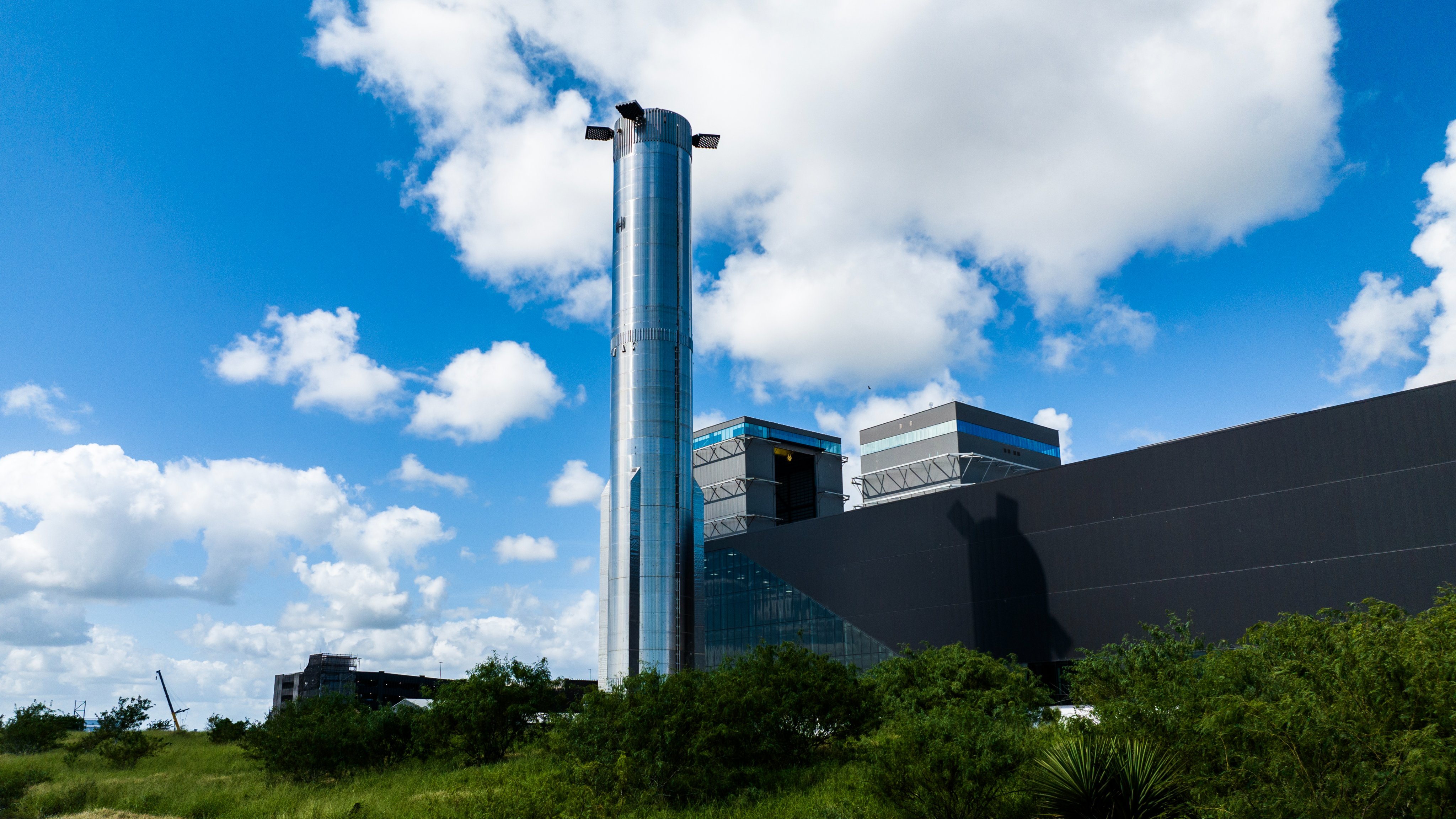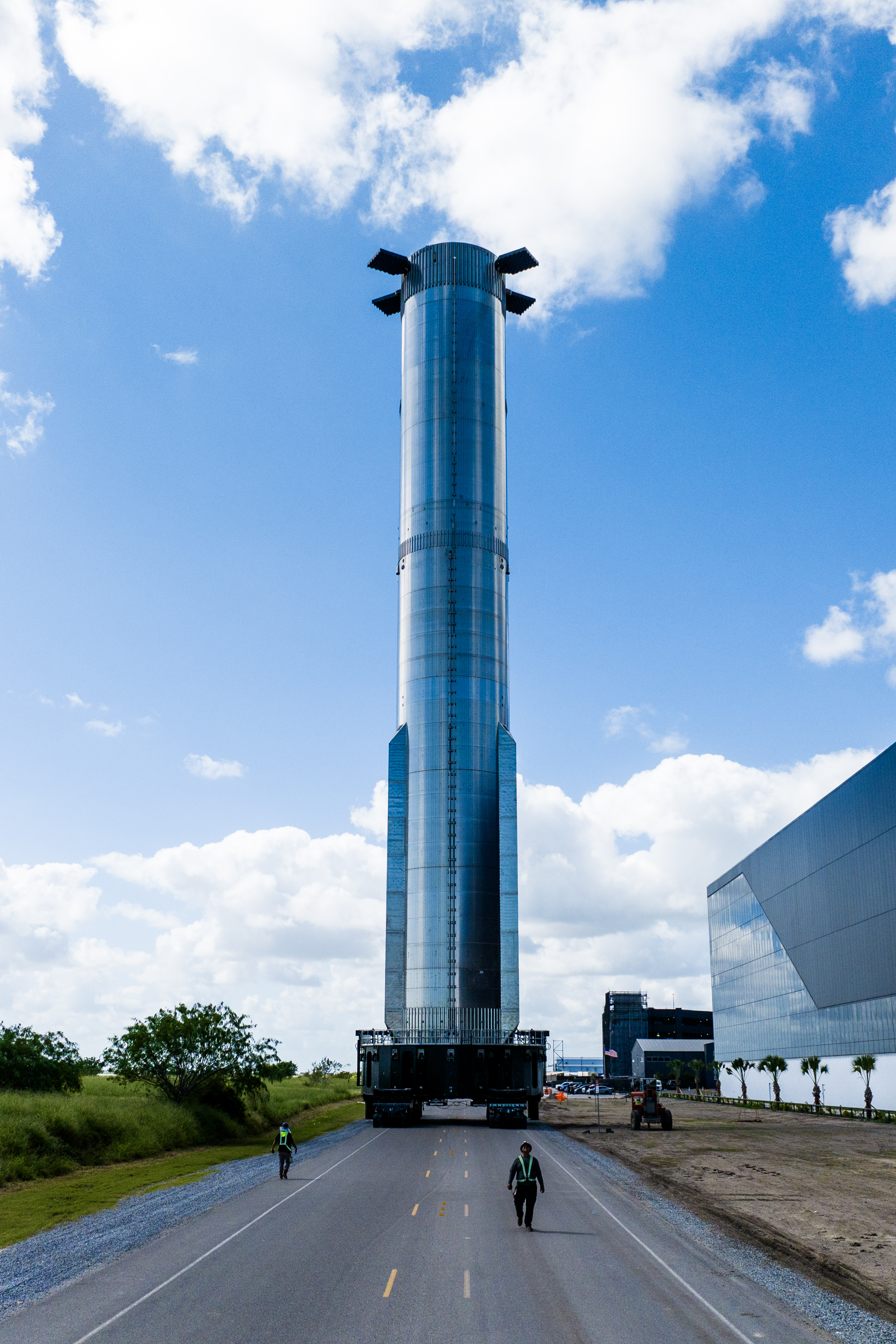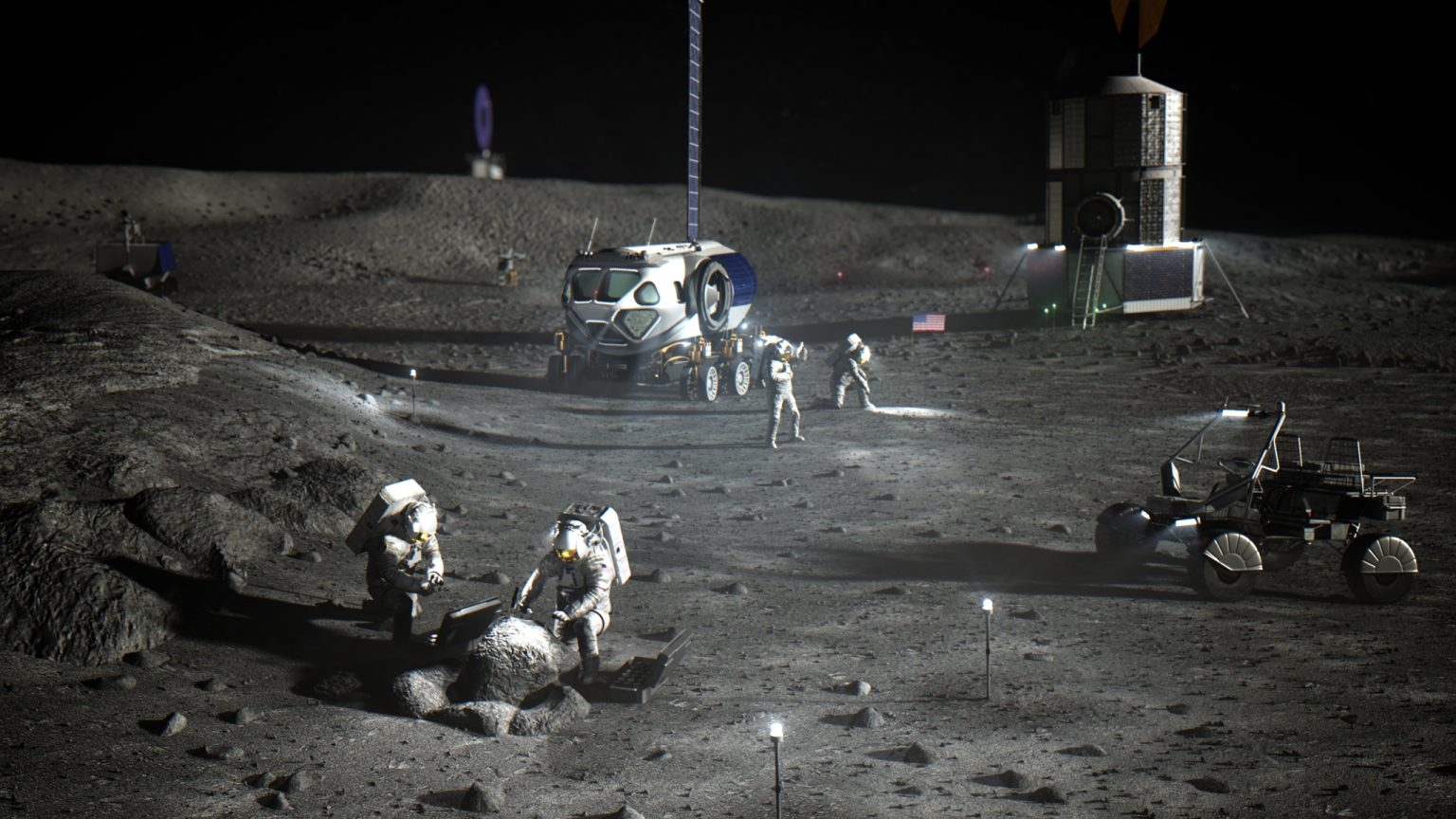SpaceX rolls out Super Heavy rocket for Starship Flight 6 test launch (photos)
SpaceX has not yet released a date for the launch, but it may be soon.

SpaceX is deep into planning for its newest Starship launch.
Super Heavy, the first stage of the rocket that hefts Starship into space, was moved to a Starbase pad for testing ahead of the planned sixth flight of the next generation space system, SpaceX officials stated on Tuesday (Oct. 22). (Starbase is the location in south Texas where Starship launches are performed.)
"Flight 6 Super Heavy booster moved to the Starbase pad for testing," SpaceX representatives wrote on X, formerly Twitter, noting they had only just returned the last Super Heavy booster from a launch one week before. SpaceX has not yet released a date, however, for the sixth Starship flight test.
Related: SpaceX's Starship come down for nighttime splashdown during epic test flight (video)
SpaceX does appear to be rapidly gearing up for the sixth flight test of Starship following the highly successful fifth excursion on Oct. 13. During that flight, the Super Heavy first stage was caught by launch tower "chopsticks" seven minutes after liftoff as the Starship upper stage (known as Starship, or Ship) flew into suborbital space. The sixth flight will aim to replicate the milestone.
On Flight 5, Starship flew for about an hour before it made a planned splashdown in the Indian Ocean, all within view of a livestream carried by the company's Starlink internet satellites.
SpaceX wants to move quickly on Starship launches, in part because it is the vendor tasked with sending NASA astronauts to the moon for the early Artemis program launches. The first moon landing effort of Artemis with astronauts, known as Artemis 3, may happen as soon as 2026.
Breaking space news, the latest updates on rocket launches, skywatching events and more!
NASA officials have been praising the pace of Starship's progress after each launch, while noting the program still has a way to go before sending humans aloft.
Artemis 3 was delayed in January this year to a September 2026 launch, roughly a year past when the mission was expected to fly. Starship development was partly the cause, but there were also technical issues with NASA's Orion crew spacecraft, the spacesuits built by private industry, and other things.
Starship will need to demonstrate "a significant number of launches" ahead of Artemis program activities, NASA associate administrator Jim Free said in June 2023. More recently, NASA has noted progress with Starship development; for example, earlier this year agency officials said Starship had passed several docking system tests as well as more than 30 milestones for human launch systems.

Elizabeth Howell (she/her), Ph.D., was a staff writer in the spaceflight channel between 2022 and 2024 specializing in Canadian space news. She was contributing writer for Space.com for 10 years from 2012 to 2024. Elizabeth's reporting includes multiple exclusives with the White House, leading world coverage about a lost-and-found space tomato on the International Space Station, witnessing five human spaceflight launches on two continents, flying parabolic, working inside a spacesuit, and participating in a simulated Mars mission. Her latest book, "Why Am I Taller?" (ECW Press, 2022) is co-written with astronaut Dave Williams.

